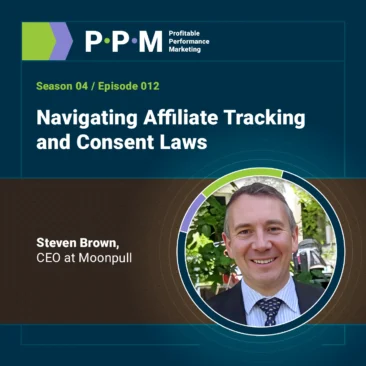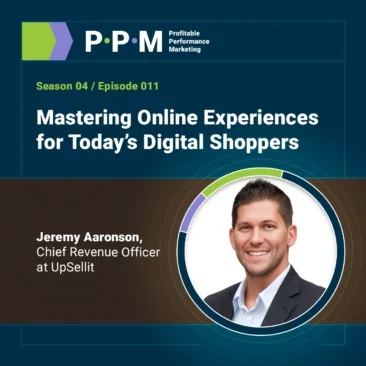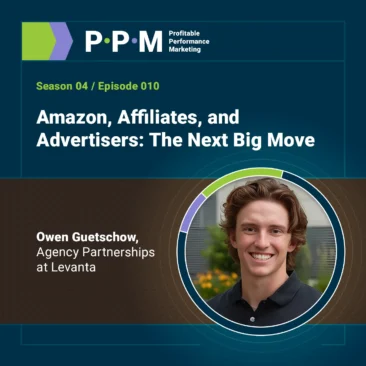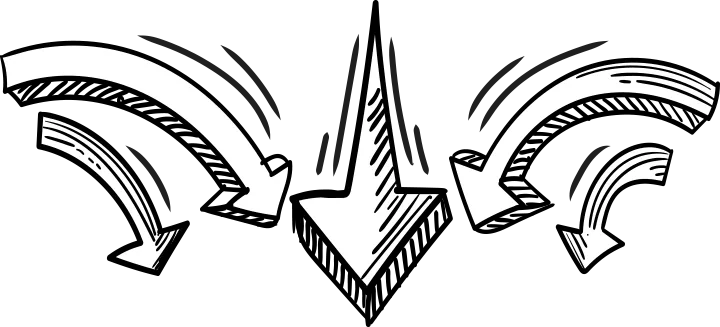Season 01 / Episode 018
Jamie (Tapia) Barr – Affiliate Manager Extraordinaire
Guest: Jamie Barr - Affiliate Manager/Growth Marketer
Note: if you get only a 30 second preview, please log into your Spotify account, or find us on one of several other podcast services.
Summary
10 year vet, Jamie Tapia Barr, joins us today on the Profitable Performance Marketing Podcast. It’s a homecoming of sorts, as Jamie started her affiliate marketing career right here at JEBCommerce. Going from an assistant affiliate manager to leading some of our most exciting and fastest growing programs, Jamie established herself as an affiliate marketing superstar early and has continued that throughout her career.
Jamie truly has a heart for affiliate marketing and has personally managed and supervised teams that developed hundreds of affiliate marketing programs in just about every vertical on the agency side and in-house at several different advertisers. Her experience is impressive and I’m glad to have her on today’s episode.
Jamie and I discuss everything from the election and how it impacts our Q4 affiliate marketing plans, to career decisions, planning and unique partnerships in the affiliate marketing space. Jamie talks about the need and advantages of being flexible in times like we are experiencing, both because of COVID and this election.
About Our Guest:
Currently, Jamie is a freelance affiliate consultant, working with both brands and agencies on affiliate marketing strategy and best practices, as well as offering program audits, network and platform recommendations, and assisting with program launches in both the U.S. and Internationally.
Previously, Jamie was an affiliate manager for the Leisure Pass Group and DXL Group.
Jamie Barr on the Web
Listen
Share
Notify
Top Tips
Be smart about the timing of your placements. Jamie mentions that right now (during an election season), many are shouting into the void because there is so much happening every minute. It may be a waste of time and money to do an expensive placement. This can also happen during peak holiday seasonal times. She mentions it’s important to time placements when you think things have settled. Regardless of outcome of the presidential election specifically, things won’t necessarily settle right away. Keep an eye on current events to be sure your money is well spent, and your message doesn’t come across insensitive.
Keep the affiliate program at top of mind for others. Jamie says that communicating often internally is important. Reminding people that the channel is a producer and isn’t just a bottom of the funnel situation, it’s more high level. There is a lot of opportunity if allowed. Many merchants don’t see it this way for whatever reason, some of which stems from a general lack of understanding about what it ultimately can do. Reiterate the possibilities and provide the data to back up the channel as much as you can.
Leave space in Q4 to be flexible. Jamie discusses how the cycle of planning hasn’t changed much. She said it’s normal to start thinking about Q4 about half way through the year. In this industry, you make a plan but it’s constantly changing. You must be limber, this hasn’t changed. She suggests leaving space in your plan for Q4 for unexpected opportunities that pop up. Leave some spend behind to test placements in October and November and make decisions based on those results.
Highlights
Being an affiliate manager often involves being a detective.
“As an affiliate manager, you find yourself being a detective. I feel like I must find every website a certain affiliate owns, and go to all the pages to find where the brand is being promoted. There are so many times when you can’t figure out why a certain affiliate is doing well or not, and you have to use all of your tools to figure out the answers.”
Quotes
[14:50] – “I think one thing that’s been more difficult to manage than usual is because there is so much happening, everyone has been more vocal about opinions and keeping less of a neutral tone, and this has affected partnerships that I work with. Specifically, this happens with influencers or niche affiliates who must break ties with certain brands or vis versa. When a program has hundreds of affiliates, it’s hard to manage every single one. I can’t audit every single affiliate post over the last ten years to be sure they align with what the brand wants, but it is important to be vigilant and aware that this is something to pay attention to.”
[25:33] – “If I could give advice to someone just starting out, it would be to learn as much as you can from anyone and everyone. Find a mentor if you can. ‘Steal’ mentoring moments as well, whether it is from your superiors or supervisors. This will help you build relationships. I still talk to 1-2 people from each company I work for and this is beneficial for networking.”
[42:45] – “Key stakeholders are those who need to have input on a project. This can be a CMO, direct supervisor, CEO or a combination. Often there are others on different teams that can be key stakeholders, such as tech or product managers. It can be hard to distinguish so it’s important to ask questions and make sure you know the people on the team who are actually signing off on approval.”





